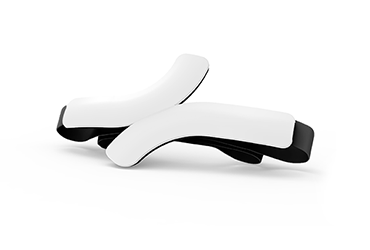Have you ever heard the term electrocardiogram or ECG but didn’t know that actually means? Maybe your cardiologist suggested an ECG test and you would like to know more about what it exactly entails? Let us get you familiar with all the most common terms related to ECG testing so next time your cardiologist mentioned it, you can have a conversation like a pro.
What is an ECG test?
Also called ECG procedure, or an ECG scan, an ECG test measures the electrical activity of the heart to ensure that it is functioning properly. To perform an electrocardiogram an ECG monitor is required.
What is an ECG monitor?
An ECG monitor, device or machine is required to perform an electrocardiogram and provide insight into whether your heart is working normally or not.
ECG traces and waves
An ECG records the heart’s rhythm and electrical activity and displays it on a moving strip of line tracings on paper or digitally, as a line on a screen. The spikes and dips in the tracings are called ECG waves. This ECG trace can be analyzed for problems and abnormalities.
What is an abnormal ECG?
There are many different heart conditions and problems that can cause ECG readings. These include the most common heart conditions including coronary heart disease, arrhythmias such as AF or tachycardia, suspected or past heart attacks and strokes.
What are ECG leads? Are ECG leads the same as electrodes?
The term leads is sometimes used to refer to the electrodes themselves in medical settings, so it easy to get confused! However, this is not technically correct usage as an ECG lead is not the same as an electrode. An electrode is the conductive pad that is placed on the skin creating the electrical circuit with the ECG monitor, while a lead is a connector to an electrode. During an ECG test, electrodes are placed across the patient’s body. The overall magnitude of the heart’s electrical potential is then measured from different angles – the number of angles corresponding with the number of leads. Leads can share the same electrode, so an ECG may be described as having a greater number of leads than electrodes are present with the ECG device.
ECG wires and patches
As you now know, an electrode is the conductive bit in contact with the skin that creates the electrical circuit with the ECG monitor. Traditional monitors use patches and wires to attach electrodes to the body and send the signal to the ECG monitor. The adhesive patches in used with traditional ECG monitor can be uncomfortable, require skin preparation, and may even damage the skin after use. If you are concerned about damaging your skin, QardioCore wireless ECG monitor is the perfect solution – it’s the only continuous ECG monitor completely free from patches and wires.
ECG interpretation and analysis
After an ECG test has been performed and the electrical activity of the heart has been recorded, it needs to be reviewed and analyzed by a trained professional for any abnormalities. A cardiologist or other specialist will examine the dips and peaks in the ECG readout. Because ECG test measures many different aspects of the heart’s function, interpreting an ECG/EKG report requires trained medical staff to provide a correct diagnosis.
Although reading ECG is best done by a trained medical professional, you can start building your ECG/EKG history on your own. With QardioCore wearable ECG monitor it’s easy as it doesn’t require any patches or wires. Learn about ECG monitors and how ECGs work here.
Sources:
NHS




